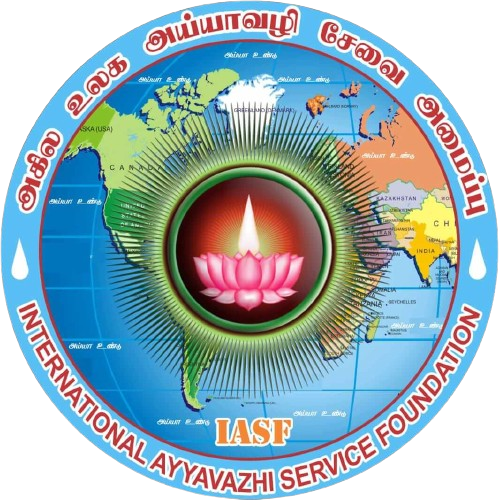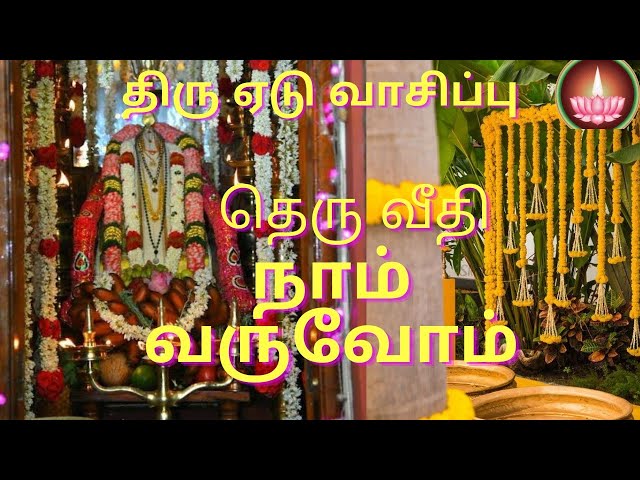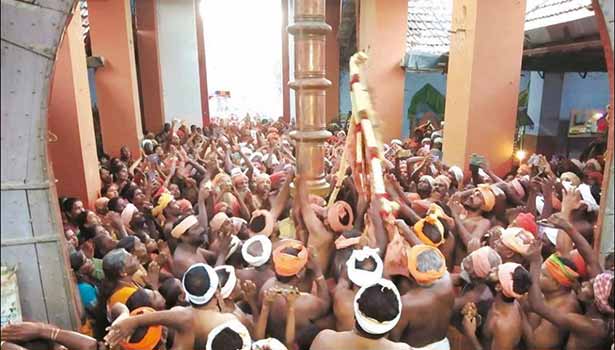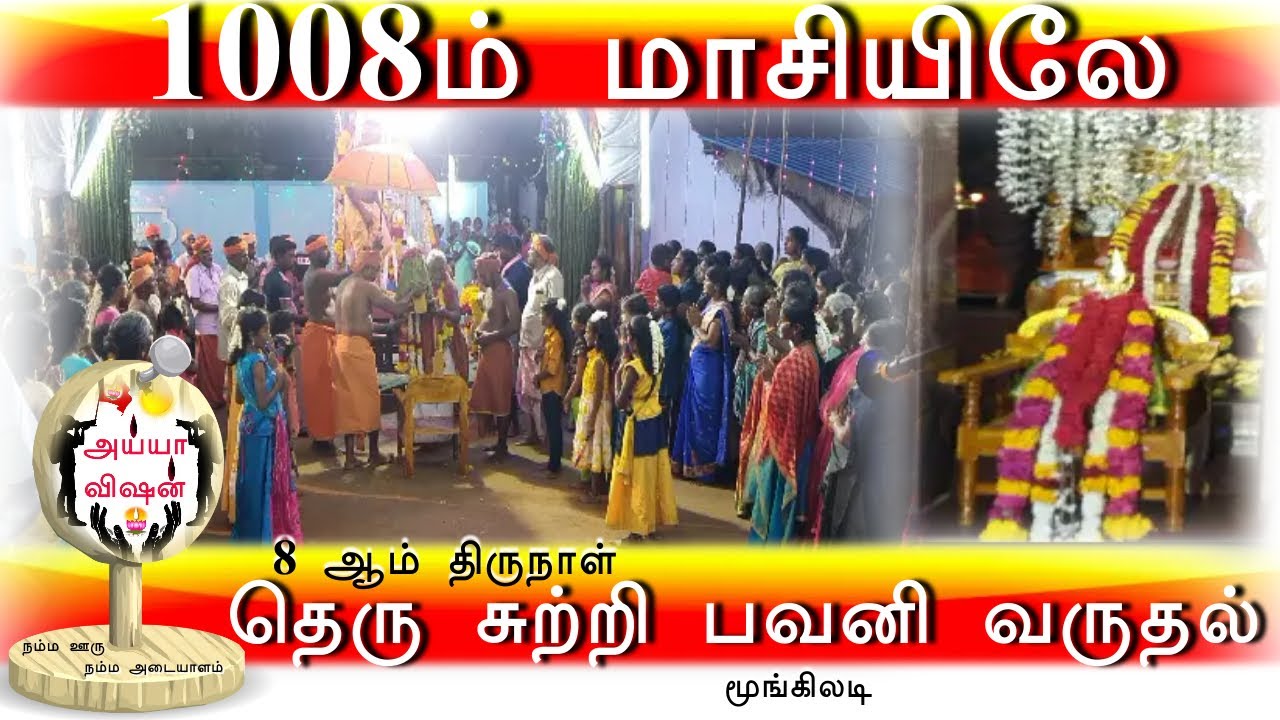Festivals
Festivals and celebrations play an important role in the socio-religious universe of Ayyavahi. Some festivals are common to Bhatisa and Shayota Dhangals, some are Patis only. On Swamithop Path, every day is celebrated as a festival called ‘Nidaham Thirunal’. Generally all festivals are celebrated in a grander manner in Swamithop than in other places of worship in Ayyavahi.
The temple is usually crowded during the three major festivals every year and on Masi 20 of the Tamil month, the famous festival of Ayya’s incarnation day (Ayya Vaikuntha Avataram). A fair number of devotees attend the prayers every Sunday for Uchipadippu (afternoon session), but the crowd gets bigger on the first Sunday of every Tamil month. However, the temple has daily prayers, at least three times a day.
If someone wants to take something to the temple while going to pray, they can offer fresh fruits, fresh flowers (flowers of the day), coconuts or tender coconuts.
Festivals
Scripture Reading
Flag Day
Masi Thirunal
Scripture reading
It is the only Ayyavar festival which is common and free of charge in all places of worship. It was usually held for about seventeen days. It usually starts on a Friday and ends on a Sunday. In Swamithop Pathi, Thiruedu reading begins on the last Friday of the Tamil month of Karthikai and is conducted for seventeen days. These days the contents of Akhilam were melodiously sung. The contents of the Universal were divided into seventeen parts and continued from the successive parts of earlier days. Each day begins with reading backup. Generally, fifteenth day ‘Thirukalyana-vasippu’ and seventeenth day ‘Pattabhisheka-vasippu’ are considered with more religious significance.
All Pathis and Shayota Dhangals conduct this festival once a year. Apart from the seventeen days schedule, some buffers run about three days, five days, seven days, ten days etc. Generally this festival is not conducted in any Pathi or Shadow Dhangals in the Tamil month of Karthikai.
Flag Day
Flag Day is common to all Padis. Now a days many Shayota Thangals have also started conducting this festival. There are opinions that only Pati should conduct Kodiyetru Thirunal. Some argue that no other worship center has the right to perform this ceremony except the Swamithob half.
Three such festivals are celebrated annually in the Tamil months of Avani Tai and Masi at Swamithop Pathi. Each festival consists of eleven days. Other Padis conduct it once a year. The festival begins with flag-hoisting (flag hoisting) Usually, a ‘seven days of begging’ (ritual practice of begging God on behalf of people) starts from the first days of the festival. On these festival days, special panivanthi is performed. Annadharma was unfavorable on the eighth day. . Annadharma on the eighth day was considered with great importance. Each day Elunetru is transported in different vehicles around the padi. As usual three panividas (pujas) are performed. The eighth day is considered as ‘Kali-vettai’ (the day of hunting Kali). The eleventh day is the Chariot Festival and the festival ends early in the morning (3.30 am) on the twelfth day.
Masi Thirunal
Flag Day is common to all Padis. Now a days many Shayota Thangals have also started conducting this festival. There are opinions that only Pati should conduct Kodiyetru Thirunal. Some argue that no other worship center has the right to perform this ceremony except the Swamithob half.
Three such festivals are celebrated annually in the Tamil months of Avani Tai and Masi at Swamithop Pathi. Each festival consists of eleven days. Other Padis conduct it once a year. The festival begins with flag-hoisting (flag hoisting) Usually, a ‘seven days of begging’ (ritual practice of begging God on behalf of people) starts from the first days of the festival. On these festival days, special panivanthi is performed. Annadharma was unfavorable on the eighth day. . Annadharma on the eighth day was considered with great importance. Each day Elunetru is transported in different vehicles around the padi. As usual three panividas (pujas) are performed. The eighth day is considered as ‘Kali-vettai’ (the day of hunting Kali). The eleventh day is the Chariot Festival and the festival ends early in the morning (3.30 am) on the twelfth day.




